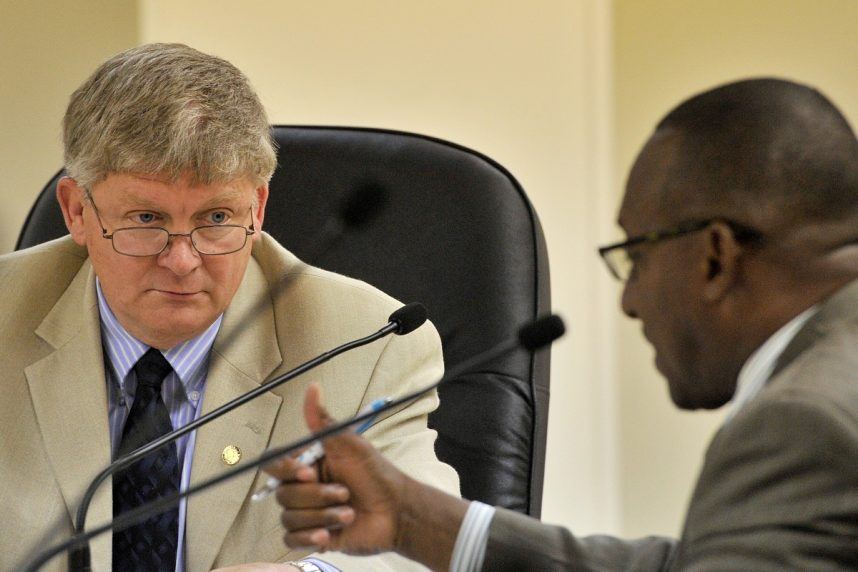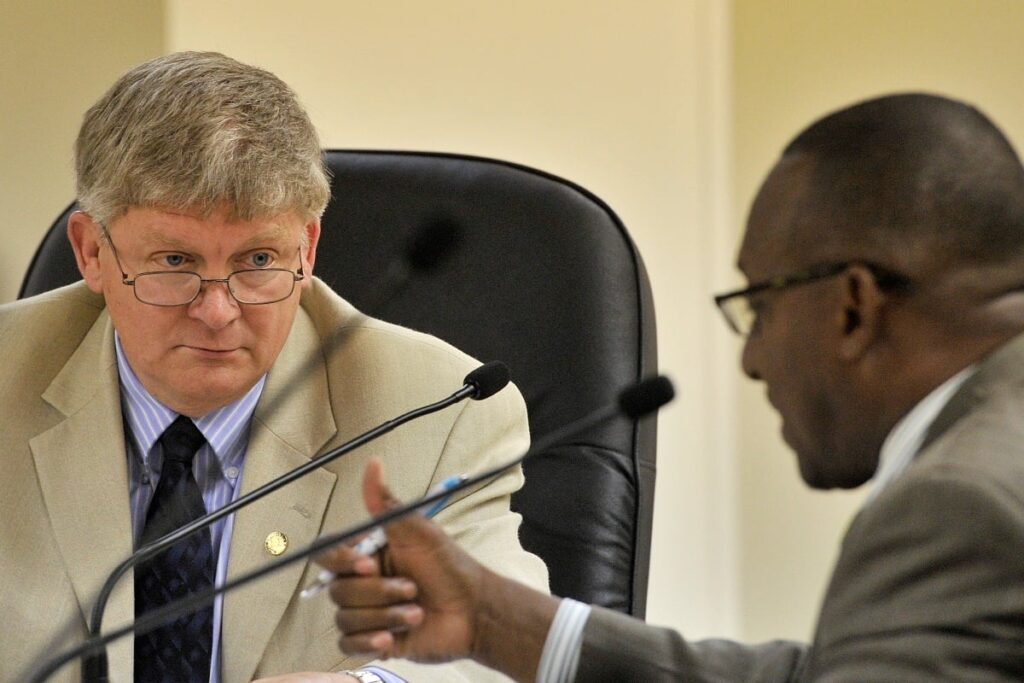Posted on: April 23, 2024, 10:44h.
Last updated on: April 23, 2024, 11:00h.
A special committee in Alabama formed of three state senators and three House lawmakers gathered this week in Montgomery to try and iron out differences between the two legislative chambers on how to go about expanding gaming in the Cotton State.

Sens. Greg Albritton (R-Atmore), Garlan Gudger (R-Cullman), and Bobby Singleton (D-Greensboro) are negotiating with Reps. Chris Blackshear (R-Phenix City), Andy Whitt (R-Madison), and Sam Jones (D-Mobile). The goal of the conference committee is to find a middle ground between polarizing gaming measures passed by the House of Representatives and Senate.
In February, the House approved legislation that would allow voters to determine whether they want to expand gambling in the state. The House measures seek to permit as many as six commercial casinos and four tribal casinos, with Las Vegas-style slot machines, live dealer table games, and sports betting permitted at the properties.
The House statutes additionally included the authorization of a state-run lottery that would participate in interstate games like Mega Millions and Powerball.
The Senate opposed the gaming package and voted to strip down the bill. The version the Senate signed off on would allow only three tribal casinos with slots and tables but no sports betting. Instead of commercial casinos, the Senate wants to allow slot-like historical horse racing (HHR) machines at the state’s four pari-mutuel wagering racetracks that previously ran dog races.
The Senate also proposed holding a special election in September for Alabamans to consider the gaming referendum, which would still include a lottery formation, instead of conducting the ballot initiative during the 2024 general election.
Resolution Outlook
Gambling in Alabama remains severely restricted. The state doesn’t currently have commercial or Class III tribal casinos, sports betting, lottery games, racinos, or iGaming. The only current permissible forms of gambling are charitable games like pull tabs, pari-mutuel wagering, and Class II electronic bingo-based gaming at the Poarch Band of Creek Indians’ Wind Creek casinos in Atmore, Montgomery, and Wetumpka.
For a legislative-initiated constitutional referendum to reach voters, three-fifths majority support is needed in each chamber. That means 21 votes in the Senate and 63 votes in the House.
Albritton stressed that a compromise will likely result in some lawmakers rescinding their support if what they want is removed from the end product. Likening the process to a “whack-a-mole” game, the longtime gaming proponent said the committee has the difficult task of finding common ground that retains the required 60% support threshold.
It’s very tenuous. We’ve never been this close before and yet we’ve never been so far either as far as the number of votes required. It’s a challenge,” Albritton told 1819 News of the chambers’ differences.
Many state senators voiced concerns about the commercial gaming component included in the House version.
“I’ve never been a really big supporter of gambling,” said Sen. David Sessions (R-Grand Bay). “I don’t want to see a big, full-blown expansion but we’ll see what the conference committee comes out with.”
Governor Maintains Support
Alabama Gov. Kay Ivey (R) continues to support authorizing new forms of gambling to provide consumer protections while generating new tax streams for the state.
[The governor] is hopeful the House and Senate can get this done,” an Ivey spokesperson said.
State fiscal projections estimate that Alabama is missing out on around a half-billion dollars in annual tax revenue by continuing its lottery and casino prohibition.




